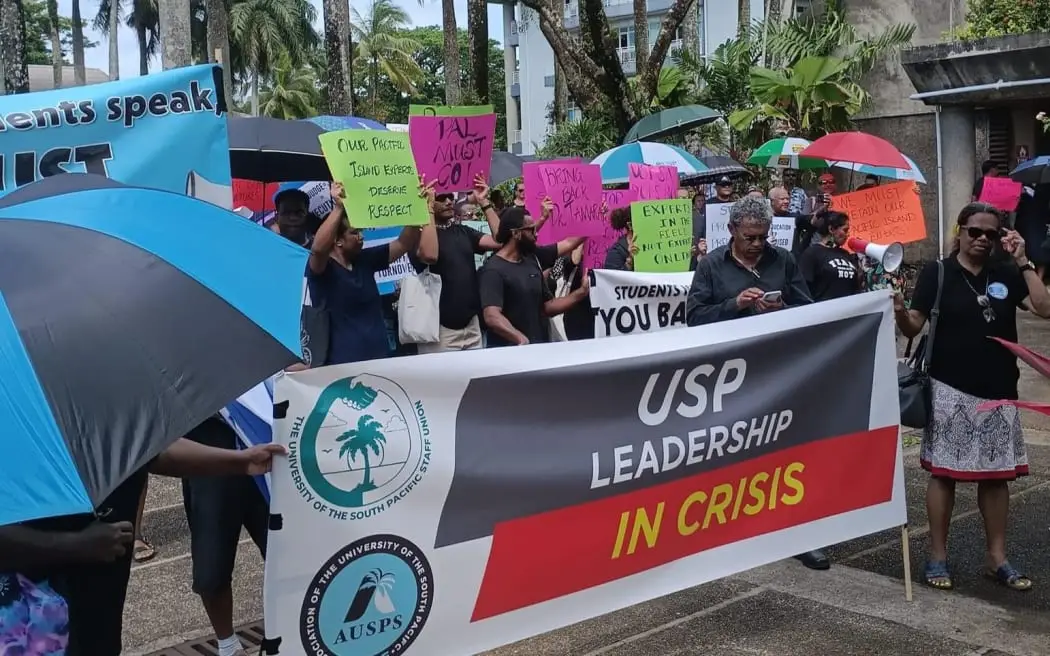University of the South Pacific Staff Demand Vice-Chancellor’s Resignation
A group of concerned alumni of the University of the South Pacific (USP) has expressed their dissatisfaction with the institution’s delay in releasing the outcomes of the 98th USP Council meeting, held in Rarotonga in late November. The delay, they claim, is “totally unacceptable” and falls short of keeping Pacific Islands taxpayers and fee-paying students informed about important decisions.
The USP Alumni Statement
The group released a statement on Thursday, stating that the regional university’s main decision-making body and support staff have failed to provide timely updates. This lack of transparency is particularly concerning given that the USP unions’ strike action mandate is active.
“This is becoming totally unacceptable. The USP should be keeping its stakeholders fully informed about important decisions,” said a spokesperson for the group. “The delay in releasing the outcomes of the 98th Council meeting is a prime example of this.”
The Allegations Against Professor Pal Ahluwalia
Earlier this week, there was speculation that USP Vice-Chancellor and President Professor Pal Ahluwalia had stepped down from his role at the Rarotonga meeting. However, the university denied these allegations, stating that information about Professor Ahluwalia’s resignation was “inaccurate.”
“The University of the South Pacific wishes to clarify that the allegations regarding events at the 98th Council meeting are inaccurate,” a USP spokesperson said.
The Real Outcome: A New Visitor and Changes in Leadership
Despite the controversy surrounding Professor Ahluwalia’s status, the USP alumni statement included a “summary of the major Council decisions.” One of these decisions was the appointment of a new USP Visitor. He is Mr Daniel Fatiaki, former Chief Justice of Fiji and Vanuatu. Fatiaki is an alumnus and Preliminary 2 graduate in the early 1970s.
The statement also mentioned that Professor Ahluwalia indicated he would be stepping down from his VCP position during the meeting.
A Complex History
The USP is jointly owned by 12 Pacific Island nations. New Zealand and Australia have been major development partners of the institution since its inception in 1968, providing core funding for the university.
This complex history raises questions about the balance of power within the university and how decisions are made.
Conclusion
The controversy surrounding Professor Pal Ahluwalia’s status highlights the need for greater transparency at the University of the South Pacific. The institution must find a way to keep its stakeholders informed, particularly during times of uncertainty or change.
The appointment of a new USP Visitor and changes in leadership offer opportunities for reform and renewal within the university. However, it is clear that much work remains to be done to restore trust among the USP community.

0 Comments